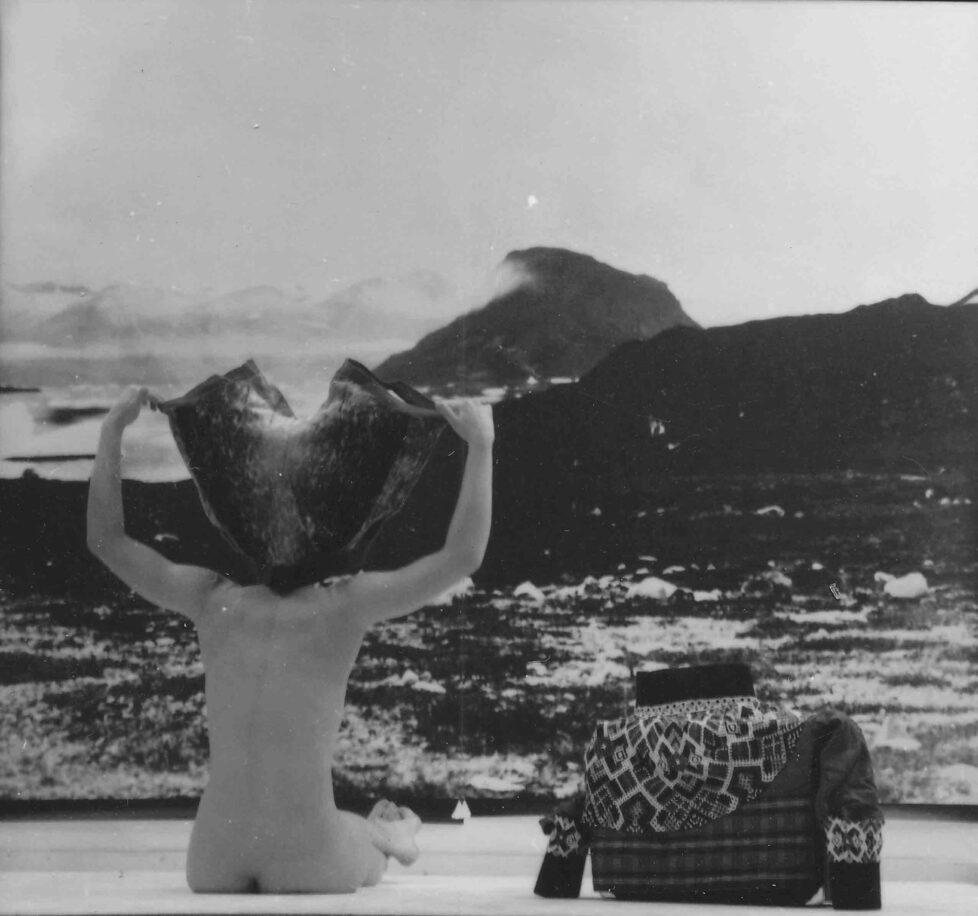Jil Rissi: (De)Colonization Through Greendlandic Lenses

Fig. 2.3.1: Jil Rissi’s Camera Obscura Cube installation, 2024.
In Europe, the image of Greenlanders is deeply influenced by colonial photography, while Indigenous images remain fragmentarily archived. This project creates a conversation with the works of Greenlandic photographers from three centuries over foreign and Native perspectives on (de)colonization.
Jil Rissi curates and presents 171 selected photographs spanning 1889 to present in an art installation that challenges conventional ways of looking at landscapes, practices and bodies, as it plays with the observers’ postures and perspectives. How do you as a viewer look at a colonized place? Visitors to the installation have to bow down to peek into the all but unopened “black box” of Danish colonialism to see a rotating cube on which a select sequence of photographs is projected from the cube’s corners. The exhibition cube is a prompt to rethink the act of looking, representing and reflecting.

Fig. 2.3.2: Jil Rissi’s Camera Obscura Cube installation is a reflection on the black box of Danish colonialism.
Breaking:
Jil Rissi‘s seminar project “(De)Colonization through Greenlandic Lenses: an Artistic Approach to History” wins the university-wide UZH Semester Prize for fall 2024.

Jil’s excellent paper engages with the Greenlandic past by studying and curating the work of indigenous photographers from three centuries. Her project makes several interesting contributions to the current state of research. By bringing to life abstract issues of representation in postcolonial contexts through the curation of documentary and artistic photography, Jil has successfully explored a complex humanities problem in a multidisciplinary way. Besides a rigorously argued seminar paper, Jil also constructed a three-dimensional installation that makes questions of archival formation, perspective and positionality tangible in an exhibition environment––thus developing an original analytical method at the intersection of history, museum studies, and creative arts.
Jil has conducted an impressive research effort on a little-known topic. Her work is timely and relevant beyond the academe: it engages actively and critically with the nature of memory in Kalaallit Nunaat / Greenland, and it even makes a contribution to recent controversies on the evaluation of Danish colonialism.
(Jonas Rüegg)
